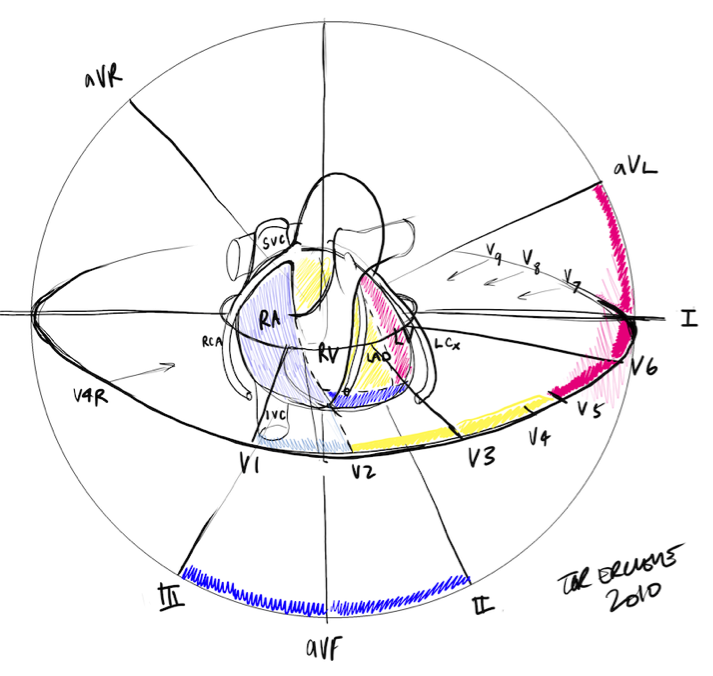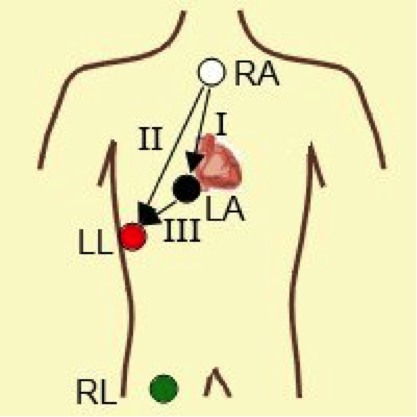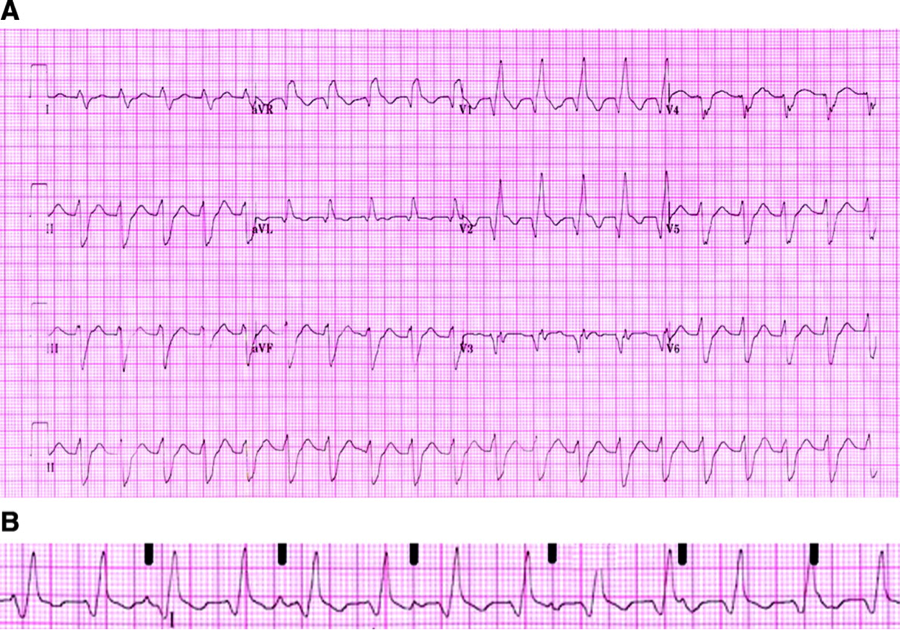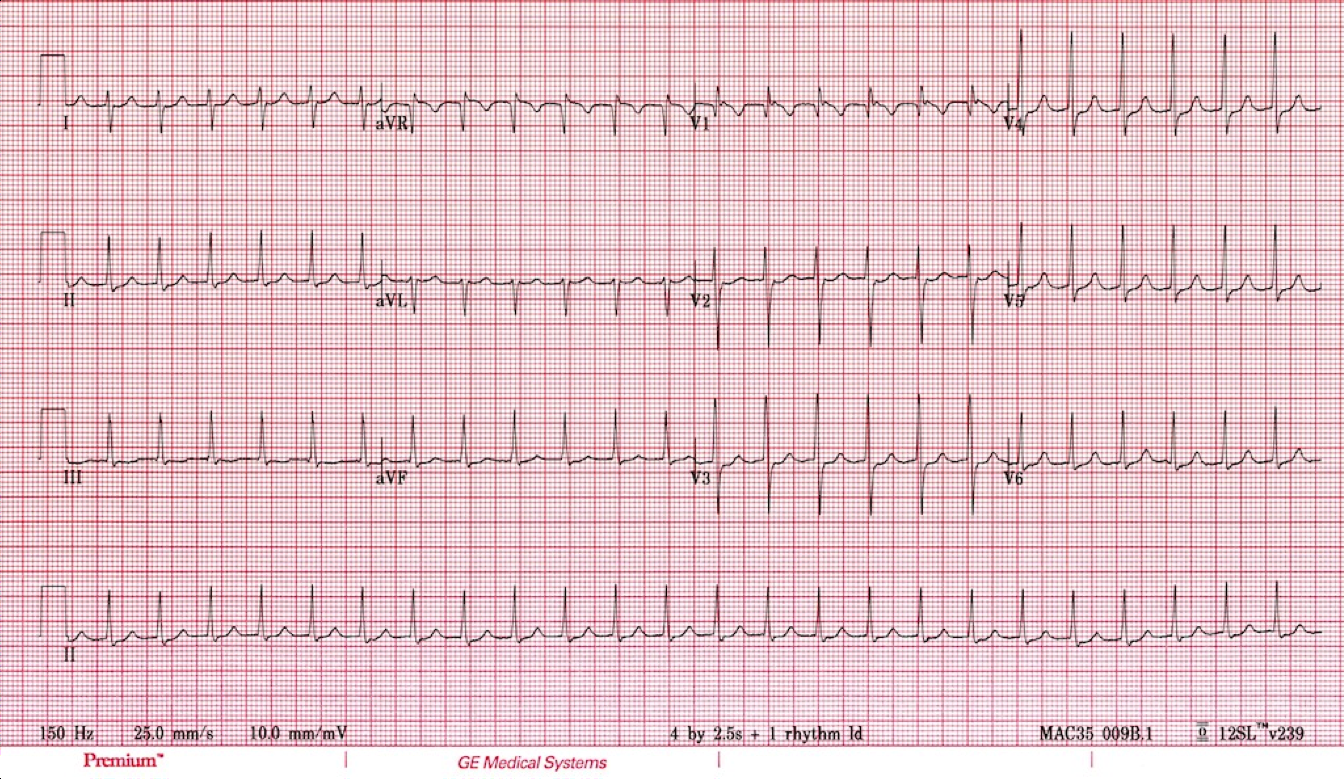Dr. Freedman is back again with another Morning Report!
To “P” or not to “P”
Ddx for a regular, fast, narrow (or not) rhythm?
- ST
- AVNRT
- AVRT
- AVRT
- A Flutter
- A Tach
- +/- Abberancy
What’s the atria doing and Where to look?

Diagnostic tools at our disposal
- Adenosine
- Altered velocity recordings
- The Lewis Lead

The Lewis Lead
- Described by Sir Thomas Lewis in 1937
- To amplify atrial oscillations during A Fib
- How to make it?
- Get comfy with your ECG machine
- Move RA to R 2nd IC space
- Move LA to R 4th-5th IC space
- Voila, new lead 1, the Lewis Lead
- Any data?
-
- Case reports and 1 prospective cohort

Reference:
- Lewis T. Auricular fibrillation. In: Clinical Electrocardiography. 5th ed. London, UK: Shaw and Sons; 1931: 87–100.
- Bakker AL, Nijkerk G, Groenemeijer BE, Waalewijn RA, Koomen EM, Braam RL, et al
- The Lewis lead: making recognition of P waves easy during wide QRS complex tachycardia. Circulation 2009;119:e592.
- http://emcrit.org/wee/lewis-lead/
The views expressed on this blog are the author's own and do not reflect the views of their employer. Please read our full disclaimer here. Any references to clinical cases refer to patients treated at a virtual hospital, Janus General Hospital.
The following two tabs change content below.


Jay Khadpe MD
Editor in Chief of "The Original Kings of County"
Assistant Professor of Emergency Medicine
Assistant Residency Director
SUNY Downstate / Kings County Hospital
Latest posts by Jay Khadpe MD (see all)
- Morning Report: 7/30/2015 - July 30, 2015
- Morning Report: 7/28/2015 - July 28, 2015
- IN THE STRETCHER INSTEAD OF BESIDE IT - July 22, 2015
- Morning Report: 7/14/2015 - July 14, 2015
- Morning Report: 7/10/2015 - July 10, 2015

